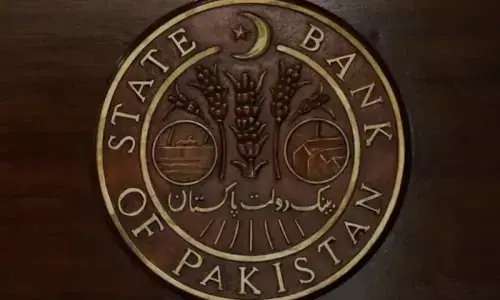
There’s no controversy about Quaid-i-Azam Muhammad Ali Jinnah’s modernist identity. While many commentators in Pakistan and the rest of the world recognise Jinnah as such, this particular aspect of his person, leadership and social vision has escaped our attention.
At a time when we as Pakistanis and our country face a challenge of identity in defining our present and future path as a nation state, we need to explore Muslim modernism in South Asia in length and engage with Jinnah’s thought, life and politics intensively.
The Muslim modernist elite fought two parallel struggles that later in historical developments converged on the idea of Pakistan. The first struggle was for Muslim awakening to the challenges included modern education, joining modern professions like medicine, law and the government services of the colonial power, Britain. These are things that we take for granted in modern day Pakistan and in other societies. But think of Muslims in India in the later part of the 19th century and you will find two retrogressive tendencies among them. At large they were fatalists, pessimistic and sought refuge in the multilayered cocoon of tradition. They were comfortable within their cocoon and unwilling to experience the life and opportunity that the colonial modernity was opening up for many Indians.
The forward-looking individuals, families and social groups among the Indians embraced modernity. The Muslims living in the glory of the past and interpreting history and conflict with the British more in religious tones than applying reason to their plight, hurt their interest in the social and economic power balance with other communities. This became the real concern of the Muslim modernists: how to awaken Muslims to rise and empower themselves.
The Muslim modernist, Sir Syed Ahmad Khan and his great colleagues, supporters and followers understood the logic of modern education, science and technology. Every idea they had about empowering Muslim community was rooted essentially in post-renaissance enlightenment. This included faith in reason that challenged old ideas of life and living, keeping what was relevant, explainable, logical and useful and leaving what was superstitious. They were highly impressed by new learning essential in science which marked a new beginning in human frontiers at personal as well as collective level. The Mohammedans Scientific Society in the 1860’s translated scientific books into Urdu and distributed among Muslims, along with articles in magazines and newspapers, about modern sciences and how Muslims and others could benefit.
The new learning couldn’t be possible without bringing Muslims to the British educational system. This was the first step that most of the Muslims were reluctant to take, fearing they would lose their faith and identity. The mullah of the subcontinent and his religious network that sustained his power and orthodoxy, built a counter movement of rejectionism presenting modern education as conflictive with Islamic ideas and ideals. Fighting this mindset we find so challenging today in the 21st century was a far greater daunting task in the latter part of the 19th century. To counter the mullah and liberate Muslims from his deadly embrace, the modernists adopted establishment of modern educational institutions like the Aligarh Muslim University and many other institutions, including the Sindh Madrassatul Islam where Jinnah got his elementary education.
The mobilisation of Muslims and their educational awakening worked, though at a slower pace with resources and a culture of orthodoxy being the major constraint. Even after almost half a century of social movement, the proportionate numbers of Muslims in modern professions and government were lower than others. The best educational institutions including the Government College in Lahore around the time of independence, had much lower enrolment of Muslims than their numbers could justify. Nonetheless, a significant section of Muslims throughout India from Bengal to the Punjab had joined the new stream of modern education and professions.
Mohammad Iqbal and Jinnah, the former a great thinker and dreamer and the other a practical politician that translated the dream of Pakistan into a reality, were the product of a new cultural climate that Muslim modernists had struggled half a century ago. Iqbal ventured into complex and difficult terrain in the re-interpreting the Islamic thought and practices along with a message of hope, change, empowerment and general awakening among Muslims. He wanted them to recapture the glory of their civilization by walking step-in-step with the modern world. The past was relevant to the present, and this could be possible only through creative interpretation, leaving the well-beaten path of tradition.
This needs some explanation. I am impressed by Eqbal Ahmed’s interpretation of Iqbal and Jinnah as constructivist Muslims, a lead that he takes from Iqbal’s four lectures on reinterpretation of religious thought in Islam. What does constructivism mean? It means living in the present and embracing modern institutions, law and practices, both social as well as political without losing sense of what is essential in the religion. It is never a rejection of religion but only its continual reinterpretation through modern institutions, like an elected parliament that may reflect the Muslim consensus.
Before I turn to Jinnah and his modernism, we need to mention the second struggle of the Muslims, the political equality and participation. This struggle was shaped by the first empowerment that came from education and entry into modern professions. When the British under the political reform programme in the beginning of the 2oth century opened up some space for representation of Indians, the Muslim leaders rightly raised the issue of their representation as a separate community. There had been a strong sense of Muslim community within the Indian civilisation fold for centuries that Muslim rule under four different dynasties for almost a millennium had further fostered. Its conversion to a modern notion of Muslim nationalism resulted from education and question of representation in all institutions symbolising power and authority in the context of imperial India.
Jinnah was a modernist Muslim more in political, cultural and social sense of the word than in the constructivism of Iqbal. His intellectual development in Britain was rooted in modern law and constitution that had roots in British history and European modernisation. He embraced the ideal of liberation and independent nationalism. The Indian nationalism first and wider philosophy of individual and collective rights had origins in his own development and embracing of modernity as a path to national progress. Besides his profession, the practice of law, all his life was devoted to the independence of India and later how to secure representation of Muslims in the British and post-British institutions through lawful, constitutional and democratic means.
Once that quest lasting until the Cabinet Mission plan failed, he found the ideal of an independent Muslim state the only idea for many Muslims. There are too many interpretations of Jinnah on this, and this is not the right place to get into them. What is relevant for us today in Pakistan, the Pakistan of the 21st century, is the larger discourse on modernity and modernism. While we may learn from Iqbal about creative interaction between civilisation and modern times, we can learn from the life and though of Jinnah about modern politics of individual rights, constitutional argument, freedoms, and democracy.
The last thing, and I believe the most significant point if the idea of the state of Pakistan as a neutral space among religion that Jinnah placed before the Constituent Assembly of Pakistan. We have deviated from that vision, a modernist vision of Pakistan according to which religion is safer in the civil society that being a strong arm of the modern state. Sooner we get back to this modernist vision, the better for our social order, peace and stability.






























